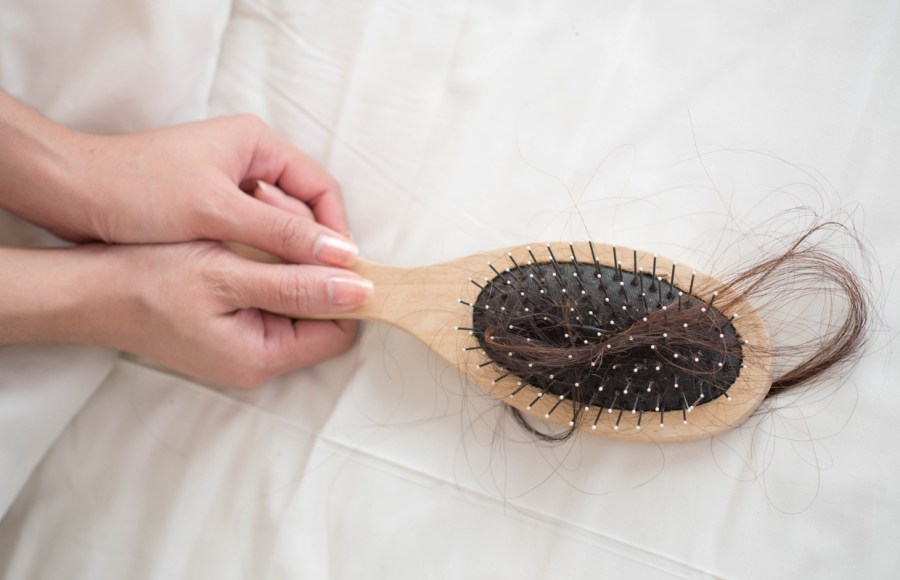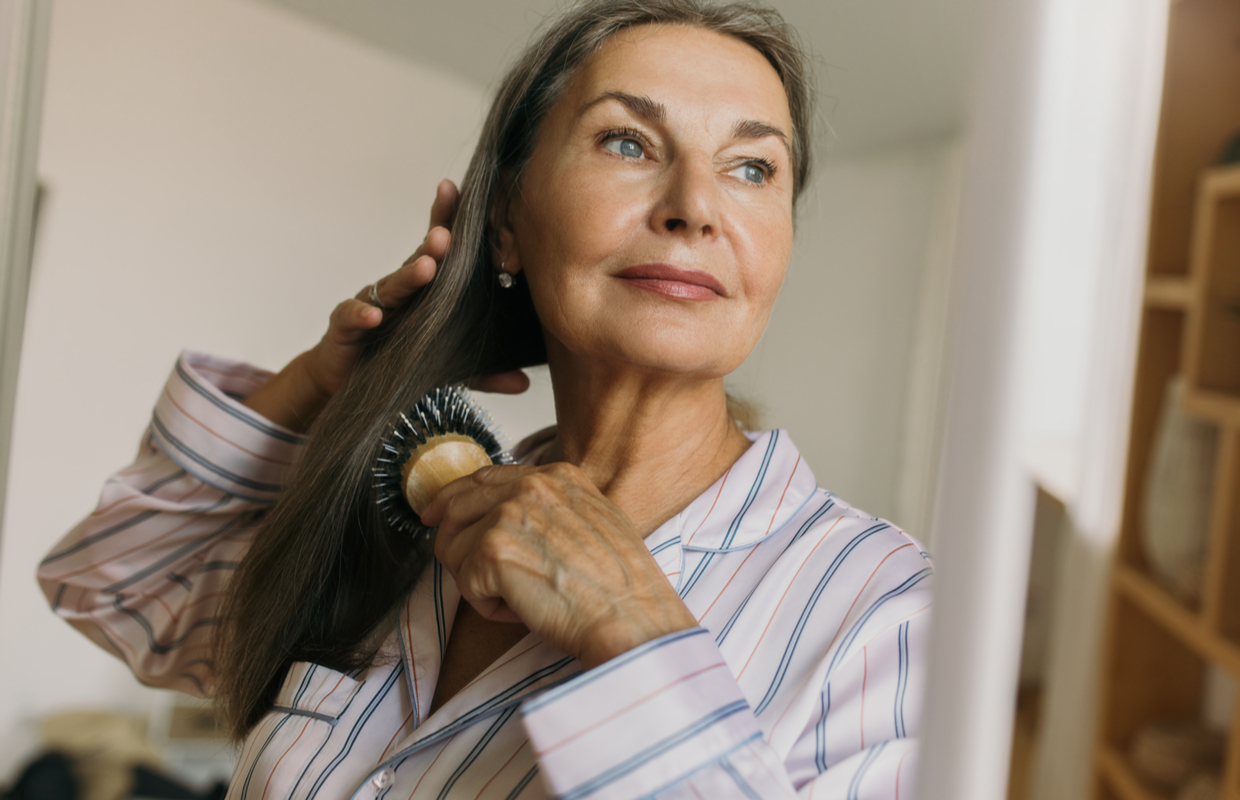Hair expert Simone Thomas shares her top tips on preventing and dealing with hair loss or thinning hair, to help you keep your locks thick and healthy…
Related: Simone Thomas: ‘Reducing stress can prevent hair loss’
Going into and coming out of winter are natural times to shed hair. It’s also normal to lose around 50-100 hairs a day. But when it’s coming out more than that, it could be telogen effluvium.
If the hair loss goes on for more than 4-6 weeks, I’d suggest seeing an expert. Also, it’s not just about your current state of health, but what you’ve been through over the past six years.
Menopause and the change in hormones can also affect hair growth. Additionally, long periods of stress can lead to hair loss.
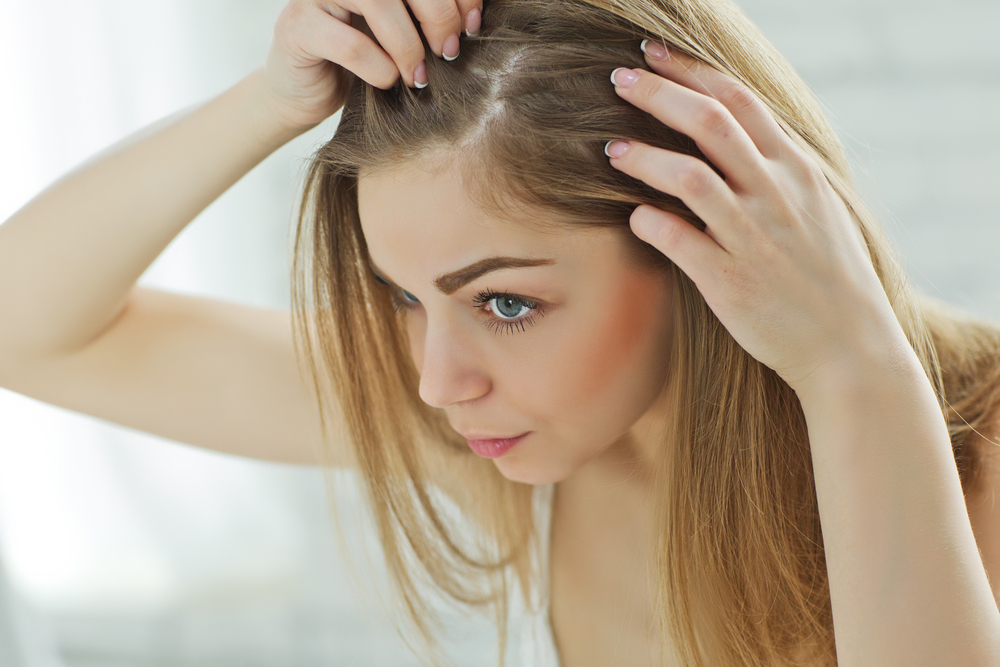
The main things that affect hair loss are: family history; stress levels; and lifestyle. Hormonal changes, like those during the menopause, can also be a factor.
Look after your scalp
Your scalp is a living, breathing ecosystem. It’s very delicate and many aren’t aware that things like medicated scalp treatments can get absorbed into the bloodstream. There are some people who want to go down the medicated route for a quick fix, but I believe it’s more important to evaluate your entire lifestyle. Fix that and then we can work on the hair.
The main things that affect hair loss are: family history; stress levels, because stress can alter follicles and even the hormones going into the follicles; and lifestyle.
Hair loss can affect all hair types, but it’s less common among those with Afro-texture hair. This tends to suffer more from traction alopecia, caused by wearing braids or hair systems that use glue, causing trauma to the follicle, weakening them and causing permanent damage, resulting in no growth.
But other causes of traction alopecia can be overuse of colouring, bleaching or straightening, which applies to all hair types.
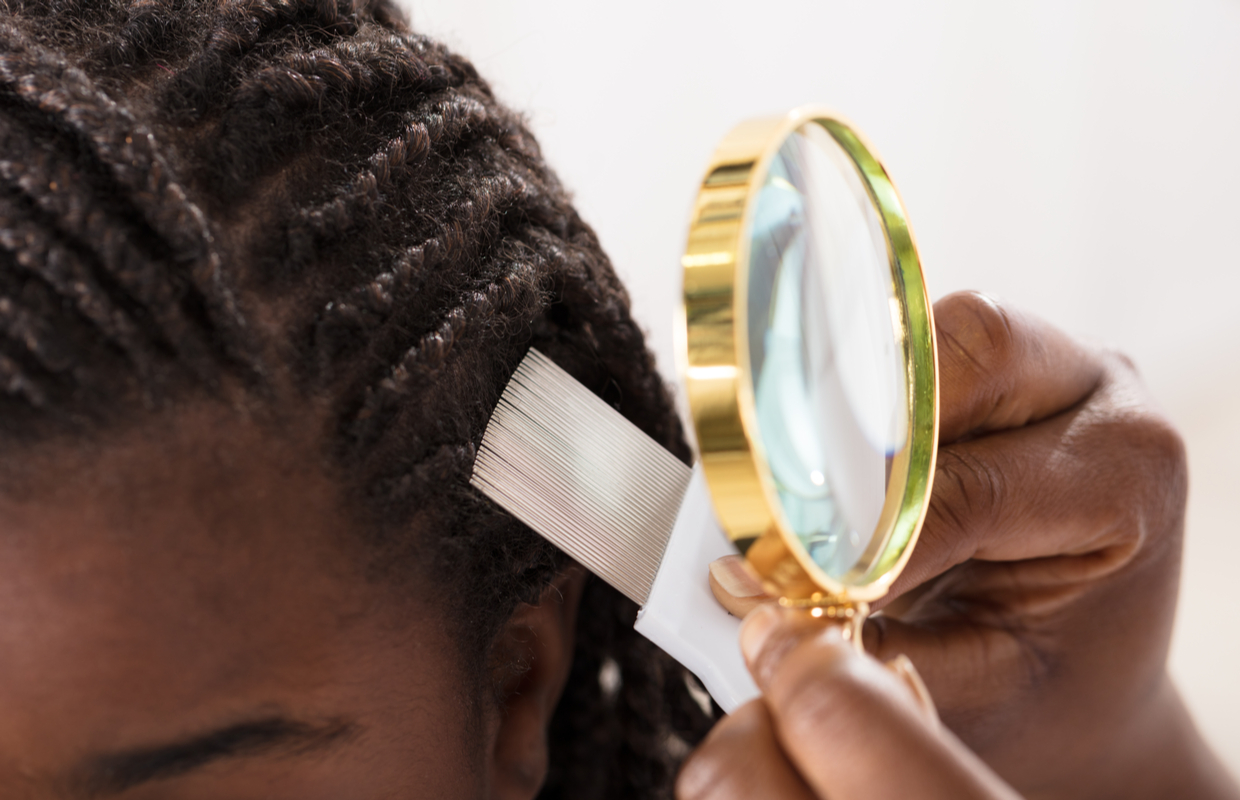
People with afro-texture hair tend to suffer more from traction alopecia, caused by wearing braids or hair systems that use glue. This can cause trauma to the follicle, and prevent hair growth.
Covid-19 and hair loss
Covid has affected a lot of people’s hair, or made them more sensitive. Last year, I had a client who had Covid-19 and lost 80 per cent of her hair, but now it’s thicker and longer than mine – and all in 10 months!
All we did was use nutrition, my Simone Thomas Wellness supplements and the Davines Natural tech range. Also, a lot of people who had Covid-19 are reacting to chemicals more because of weakened immune systems. People are having reactions they didn’t have before, including after having the jab. Their bodies can’t cope with what’s in colour products.
Hair loss: how to stop thinning hair
What to do…
1. BRUSH 100 TIMES
I went to boarding school and every day we had to tip our heads upside down and brush our hair 100 times – and it worked! So, blood flow is really important. An Indian head massage is great, too. Either get someone to do it or massage your scalp yourself.
2. CARRY ON WASHING – EVEN FOR THINNING HAIR
Not washing or brushing your hair is the worst thing you can do. When people experience hair loss, they often don’t want to wash their hair too much or brush it for fear of it coming out, but hair needs to be nurtured; your scalp needs to be stimulated.
3. USE SERUMS TO PREVENT HAIR LOSS
With clients, I use hair serums and tonics to improve growth. I go for ones from the likes of Davines and its Naturaltech range. The range is vegan and it’s very pure, both in ingredients and how it’s made.
4. FLUSH OUT TOXINS TO STOP THINNING HAIR
Anything to do with helping your body move and flush out toxins helps. I recommend people do dry body brushing and take Epsom salt baths.
Related: Bath tips for glowing skin, soothed muscles and a relaxed mind.
5. STAY HYDRATED
You lose so much water on a day-to-day basis and need it to help flush your system. It’s vital for your skin and scalp. If you have healthy skin, you’re going to have healthy hair. Just increasing your water intake for 14 days will help your concentration, reduce headaches and help your skin and scalp.
6. TAKE SUPPLEMENTS TO PREVENT HAIR LOSS
Gingko biloba hugely helps with blood flow. Algae, such as chlorella and spirulina, helps remove toxins and keeps you more alkaline, which is good for your gut. Biotin is often linked to hair health, but you should get enough through diet.
Collagen depletes from age 25, so taking a supplement can help your hair – take it alongside amino acids and vitamin C. Take a good probiotic too for gut health as everything starts there. I like encapsulated supplements as they survive the acidic environment of the gut.
…and what not to do!
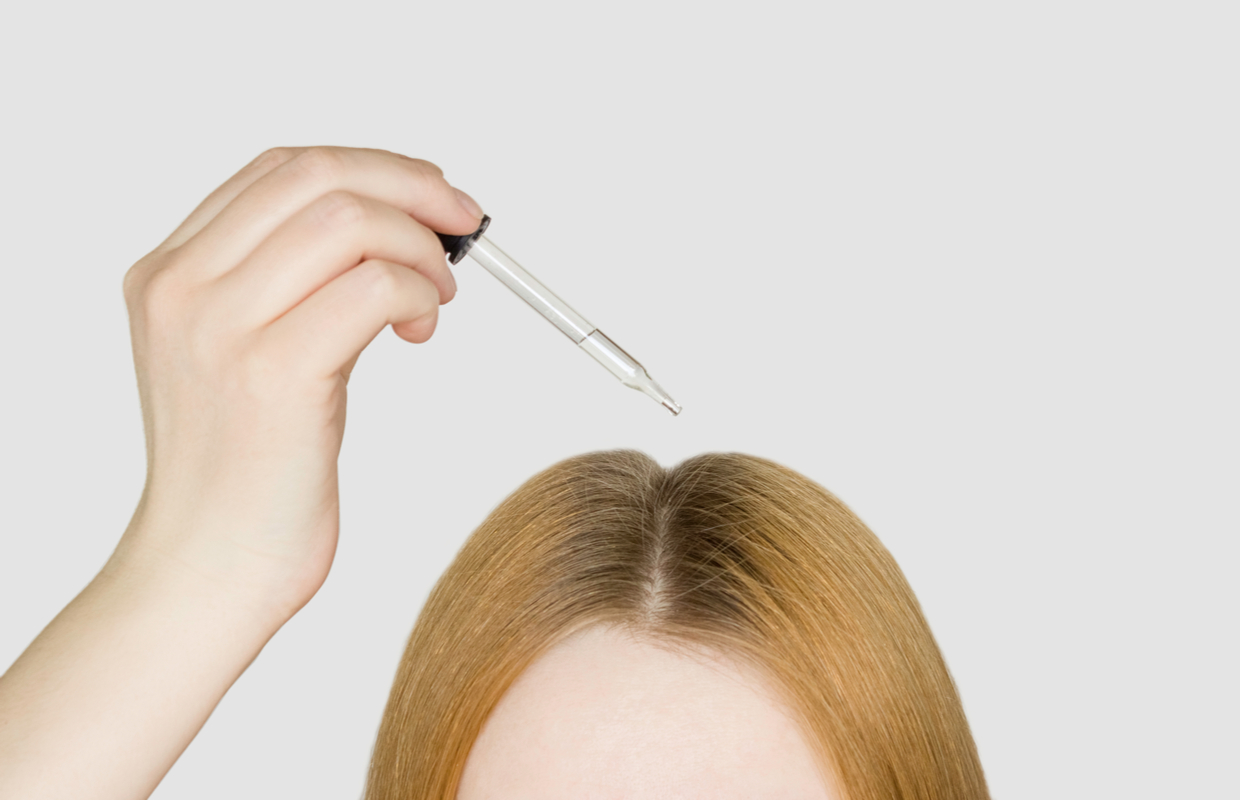
7. BE CAREFUL WITH SCALP OILS TO PREVENT THINNING HAIR
If you block your follicles with oil, you’re at risk of stopping new hair growth coming through. This is why it’s important to wash your hair frequently, even if it’s thinning, to remove excess sebum, oil, debris and environmental pollution.
If there’s no room for new hair to grow, eventually your hairs are going to become thinner. Avoid argan and coconut oil if you have Caucasian hair. Only use these if you have Asian or Afro-texture hair, which tends to be thicker.
For very fine hair, only use oils on your scalp for 20-30 minutes, then wash them off – and don’t leave them on overnight.
8. DON’T WASH DAILY TO PREVENT HAIR LOSS
When it comes to how often you should wash your hair, everyone is different. But if you need to wash it daily, something’s not working and it often comes down to product, which could be too oily or contain too many chemicals, making your follicles produce too much sebum.
9. AVOID DRY SHAMPOO
While there may be a time and place for dry shampoos, they’re not for every day. Dry shampoos, coloured root touch-up sprays and those hair fibres that help make hair look thicker, all accumulate in your hair.
Even if you wash your hair and it looks clean, if I were to look under a microscope, I’d see all the microparticles congesting and blocking the follicles.
10. REDUCE THE DYE TO PREVENT HAIR LOSS
While dyeing your hair doesn’t mean you’re going to get hair loss, if bleach or colour is left on for too long, it can cause breakage. Also, box dyes are not the same as salon colours.
When you go into a professional salon for root touch-ups, the development time is maybe half an hour. Most box dyes only need 15 minutes, which means the chemical compounds must be a lot stronger. Colouring your hair every 4-6 months is OK, but every 3-4 weeks is too much in my opinion.
11. DON’T EXPECT MIRACLES
Regarding red light LED devices [meant to stimulate hair growth], these are great for your skin but your hair forms deep in your scalp not on top of it, and these devices can’t penetrate deep down. I’m not saying they are harmful, but you won’t get results on your scalp or hair like you would your skin.
12. AVOID HAIR VITAMIN GUMMIES!
People ask me about hair, skin and nail gummies [chewable vitamins] and I say, you might as well eat wine gums! They’re mostly sugar, which isn’t good for your health.

